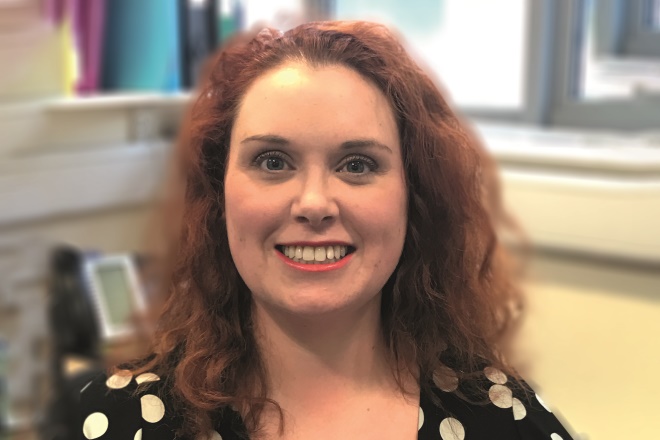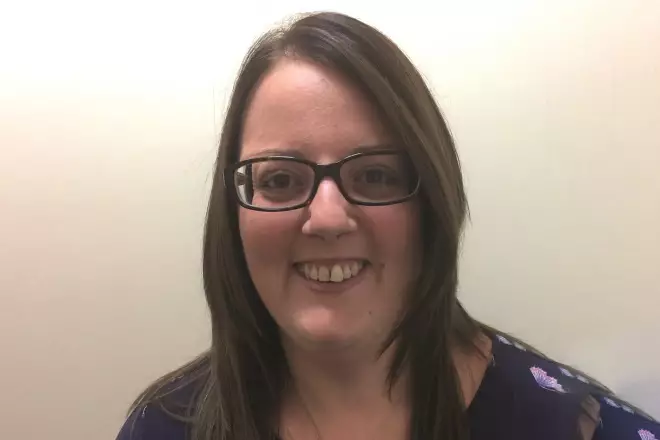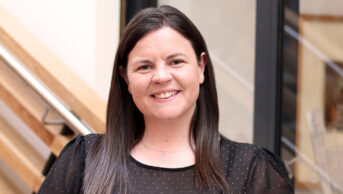
Shutterstock.com
Summer placements are a great introduction to a particular sector before undertaking your preregistration training. But how should you prepare to ensure you get the most out of the experience?
Before the placement
Before your placement it is important to plan ahead and be organised. “Ideally one week prior to the start of the placement, contact the placement provider (e.g. company or hospital) by phone or email to confirm the details (see the following sections for some of the details to clarify), as well as the start time and the name of the member of staff to make contact with upon arrival,” explains Karen Gunnell, teaching fellow at the School of Pharmacy, Keele University.

Source: Courtesy of Karen Gunnell
Karen Gunnell, teaching fellow at the School of Pharmacy, Keele University, says based on her experience working with students completing summer placements, “prior preparation is key in helping students get the most out of the experience.”
Dress code
”The next thing to think about is what to wear. Certain placement sites may have a specific dress code; therefore, it is a good idea to contact the placement organiser to confirm this,” says Gunnell. “If no guidance is given it is advisable to dress professionally during the placement. This means trousers and shirt for men, and trousers or skirt and top for women,” she adds. It is not advisable to wear denim, casual wear, trainers, short skirts or low-cut tops. Hats should be avoided unless worn for religous observance. Jewellery, make-up and nail polish should be tidy and subtle.
Hospitals will have additional rules because of infection control. Nail polish is not permitted, and students should follow the principle of ‘bare below the elbow’ in clinical areas. In practice, this means no jewellery, with the exception of a plain wedding band (no diamonds) and long sleeves should be rolled up to the elbow.
Certain placements may require students to be on their feet for a long periods of time during the day. Therefore comfort is key when considering what style of shoe is most appropriate. Closed-toe shoes should be worn throughout the placement and if purchasing a new pair of shoes, ensure they are comfortable enough for all-day wear.
Travel
Minimise the stress of the daily commute by deciding what means of transport would be best suited for the journey.
If public transportation is the most convenient, determine the route and timetable which provides the most reliable links to the placement site. If the duration of the placement spans over a week or more, consider obtaining a weekly or monthly travel pass, which could save money.
For drivers, it is advisable to become familiar with the intended route. Allow sufficient time to navigate around unexpected road incidents and to find parking. Have a back-up parking spot in mind and carry sufficient change to pay for meters or ticket machines. A season ticket for the car park may be more economical than paying the daily rate depending on the duration of the placement.
Objectives
”Setting objectives before the start of a placement will provide students with an insight into what they would like to gain from their experience; whether it is being immersed in a new sector, applying theoretical knowledge in a practical setting, or meeting useful contacts prior to preregistration. Whatever the motivation, setting goals and objectives is an important step in the reflective process,” explains Kerry Neville, academic clinical educator, School of Pharmacy, Keele University.

Source: Courtesy of Kerry Neville
“Being proactive and showing interest will go a long way in helping students make a lasting impression on potential future employers,” advises Kerry Neville, academic clinical educator at the School of Pharmacy, Keele University.
“It’s a good idea to research the placement provider as this will help shape these objectives and align them to the services provided by the placement site. ‘Observing a minor ailments scheme’ would be an unrealistic objective if the scheme did not operate at that pharmacy,” she adds.
Discussing these objectives with the placement provider will allow them to enhance and tailor the placement to specific objectives. However, it may not be possible to observe everything if time is short or if there is a need for extra training.
Attendance
Plan for daily attendance; however, wherever this is not possible (e.g. for examination resits) discuss this with the placement supervisor before the placement. It is also important to be aware of the placement site’s absence reporting procedure in the event of unexpected illness.
During the placement
Engagement and professionalism
Remaining engaged throughout the placement is important, regardless of the initial interest level. The experience and skills gained will have relevance (no matter how small) at some point in the future. Arani Kalaparan, a fourth year student completing a summer placement at Pharmaceutical Press says, “It’s important not to be closed minded and to learn about an alternative career path in pharmacy. Prior to starting the placement I did not know much about Pharmaceutical Press, just some of the books they publish. However, I am learning and using a completely different set of skills.”
A summer placement is an opportunity to network and demonstrate skills and positive attributes potential employers will find attractive. It is important to note that performance is also a reflection on pharmacy schools. Poor performance has the potential to portray a negative image of a particular university, making students less attractive candidates for future summer placements.
While on placement, students are seen by the public as a member of staff, often no different to regular staff. It is important, therefore, that the values of the company / hospital are represented through high levels of professionalism.
Although this may seem daunting, Malka Sills a third year UCL pharmacy student, who has previously completed a summer placement at Boots, says: “Don’t be scared, just be confident as you have the clinical knowledge to help patients.”
Be proactive
Part of being professional is being proactive in attitude and task. Take an interest in everything that is demonstrated or delegated and help the team wherever possible. No task should be considered beneath you. Even company directors make the tea and this helps to develop a good working relationship with staff on the placement. The ability to work as part of a team is as important as the clinical knowledge acquired during university.
Prior preparation and research of the specialty area being observed is advised. If a visit to the cardiology ward is scheduled for Tuesday, a quick revision of the topic the night before will be helpful when answering questions and demonstrating knowledge. It will also put learning into context and boost confidence.
It may be helpful to keep a small notebook to document learning points and any feedback received. However, ensure that confidential details are not recorded and don’t forget to bring a pen to the placement.
Challenge yourself
It is expected that students will not possess extensive pharmacy knowledge at this stage; however, placement supervisors will always be impressed whenever initiative or interest in learning is demonstrated. Don’t be afraid to get stuck into tasks assigned to you. Have a go – you might surprise yourself!
Maria Pantsjoha, who completed a summer placement at the Martindale in 2016, advises students to “show a willingness to learn”.
”Also, take a genuine interest in your work and the other members of the team. Every summer placement is a brilliant opportunity to network, to build long-lasting connections and even find further exciting opportunities.”

Source: Courtesy of Maria Pantsjoha
“Completing a summer placement gave me the opportunity to showcase my clinical and professional skills in an unconventional pharmacy setting as well as a chance to further refine them,” says Maria Pantsjoha, who completed a summer placement at the Martindale in 2016
Always be mindful of patient safety, as well as personal and professional limitations. Do not be frightened to ask for help if needed.
Questions
Ask questions! It demonstrates engagement and interest. It is important, however, that questions are well thought out, relevant and appropriate.
Do not feel intimidated about asking questions, but don‘t be surprised if the question is answered with another question. This is a common teaching method of practitioners, so be prepared to find the answer and to report back.
Constructive feedback
Feedback can be delivered in many different ways. Formal feedback may be in the form of reviews with paperwork to complete, or through informal feedback such as a positive comment at the end of the day. Both are equally valid as long as the feedback is acted on.
If no feedback has been given, it is important to ask for it as it will help identify areas of strength and those that require attention. Therefore, constructive comments should not be taken personally and should be viewed as a means to develop professionally.
You may want to record your feedback as this can be reflected upon at a later date and it is useful for proving competence in certain areas.
After the placement
Feedback, reflection and moving forward
By the end of the placement, you will have gained lots of feedback and good experiences during the placement. You may also have had some bad or less positive experiences. “After the placement it is important to take some time to reflect upon these. Asking self-reflective questions can help,” says Neville. Box 1 provides a list of reflective questions that might be useful.
Box 1: Reflective questions to ask yourself after a placement
- What went well?
- Why did it go well?
- What went bad / not so well?
- Why did it go badly / not so well?
- What did I enjoy and why?
- What did I learn?
- How can I link this to my course?
- What did I learn about myself?
- Would I do anything differently if I was to do the placement again? Why?
- What would I do the same if I was to do the placement again? Why?
- Would I work there again?
- Do I want to apply for preregistration there?
“After reflecting on the placement, putting together an action plan will identify ways to improve and develop. This might be useful for another placement that summer or it may be something to work on when university starts again and to discuss with a personal tutor,” says Gunnell.
“It can also help focus the mind on personal career aspirations and provide some clarity on which preregistration sector and location to apply for. Consider discussing this with a personal tutor or the careers team at university,” she adds.
Summer placements provide the opportunity to acquire and develop both clinical knowledge and professional skills; and now is the time to put these into practice at university. Knowledge is important but the soft skills pharmacists develop are equally, if not more, important. Victoria affirms that “[communication] is the most important skill in team work”. There are plenty of opportunities to apply these skills when preparing for OSCEs, during patient interactions and when working with colleagues and staff at university.


